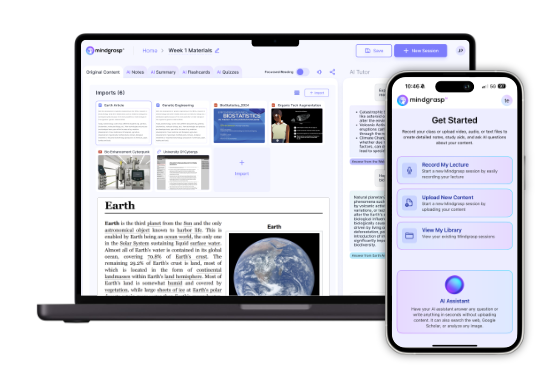
You don’t always have to take physics in high school, but it can really help you out!
It boosts problem-solving skills and gets you ready for STEM fields. Some states require it, while others leave it up to your school.
If you’re into topics like energy, motion, and the universe, physics might just be your jam! Plus, it’s great for college prep.
Interested in exploring what options might work best for you? You’re in the right place!
Key Takeaways
- High school physics requirements vary by state; some states mandate it while others consider it optional for graduation.
- Texas requires three science credits, with physics being optional, whereas New York includes physics as a possible physical science credit.
- Florida mandates chemistry or physics for the Scholar Diploma, emphasizing the importance of these subjects.
- Many schools follow a sequence that includes physics in junior or senior years, but alternatives like Earth Science or "Physics First" exist.
- Students can explore other science tracks like biology or computer science, allowing for a personalized high school experience without mandatory physics.
Boost Your GPA Faster with Mindgrasp
Instantly turn your class notes into smart summaries, flashcards, and quizzes—study less, learn more, and ace your exams.
Try it FreeUnderstanding Graduation Requirements
When you’re maneuvering through high school, understanding graduation requirements can feel like trying to solve a puzzle—especially when it comes to science classes. Each state has different rules, so here's a quick rundown:
-
Texas: You need three science credits; physics is optional.
-
New York: Two physical science credits, which might include physics.
-
Florida: Chemistry or physics is needed for the Scholar Diploma.
-
California: At least two science credits, determined by local authorities.
-
Washington: You need four science credits, but no specific courses are listed.
Keep these state variations in mind as you navigate your graduation timelines! Additionally, consider utilizing tools like AI tools for physics students to enhance your understanding of the subject if you choose to take it.
Try Mindgrasp for Free!
Experience an easier, faster way to boost your GPA. Sign up now to try Mindgrasp AI for free and see how AI-powered learning transforms your study routine.
Try it FreeTypical Course Sequence for Science
High school science courses usually follow a pretty standard sequence, and understanding it can help you plan your schedule better. Most students start with Biology in freshman year, since it's more about foundational concepts than math.
Then, in sophomore year, you immerse yourself in Chemistry, where you’ll encounter some equations (don’t worry, they can be fun!). By junior and senior years, you tackle Physics, which requires some Algebra 2 knowledge.
In sophomore year, dive into Chemistry's fun equations, then gear up for Physics in junior and senior years!
However, course variations exist! Some schools might teach Earth Science first or even use a "Physics First" model.
Whatever path you choose, just stay curious and enjoy the ride!
Curriculum Focus and Skills Developed
When you take physics, you’re not just memorizing facts—you’re learning some awesome stuff!
You’ll explore core topics like motion and energy, tackle problem-solving challenges, and get hands-on with lab work that makes those concepts click.
Plus, you'll pick up skills that help you think critically and apply what you learn to real-life situations (like figuring out why roller coasters are so thrilling!).
Core Physics Topics
Physics might seem a bit intimidating at first, but don’t worry—it's all about understanding the world around you!
In high school, you’ll engage with core physics topics that make up the foundation of this fascinating subject. Here’s what you can expect:
-
Motion Principles: Explore kinematics and Newton’s Laws.
-
Energy Forms: Discover kinetic, potential, and thermal energy.
-
Wave Behavior: Learn about sound and light waves.
-
Force Interactions: Understand electric circuits and momentum conservation.
These topics not only build your problem-solving skills but also relate to real-life situations—making physics super relevant!
Problem-Solving Emphasis
Getting the hang of physics isn’t just about memorizing formulas or crunching numbers. It’s all about mastering problem-solving techniques that boost your conceptual understanding.
You’ll learn to identify principles, justify your choices, and plan solutions before diving into calculations. This approach not only sharpens your critical thinking but also helps you connect physics to real-world situations—like figuring out why a skateboard rolls faster down a ramp.
Plus, analyzing errors in your reasoning makes you a stronger learner. So, if you embrace these strategies, you’ll tackle unfamiliar problems with confidence and creativity.
Who knew physics could be this fun?
Lab Work Importance
Lab work is often the best part of learning physics because it brings theories to life in a hands-on way. Engaging in experiments helps you build essential skills.
Here’s what you’ll gain:
-
Develop lab techniques through real-world applications and experimental design.
-
Enhance critical thinking by analyzing data and troubleshooting unexpected results.
-
Foster teamwork skills while collaborating with peers on projects.
-
Understand safety protocols, ensuring a secure lab environment.
With these experiences, you’ll improve your problem-solving strategies and deepen your conceptual understanding—making physics not just a subject, but an exciting adventure!
Alternative Tracks for Students
If you’re not too keen on taking physics in high school, don’t worry—there are plenty of exciting alternative tracks you can explore!
Consider diving into alternative science subjects like botany, zoology, or even marine biology, where you can engage in interdisciplinary studies without physics.
You might enjoy genetics or nutrition science, focusing on health and biological systems.
Plus, advanced biology and environmental science courses can deepen your understanding of essential science concepts.
Don’t forget about computer science pathways, offering tech-oriented options with little physics involved.
Embrace these alternatives, and make your high school experience truly yours!
State and Local Policies on Physics Education
While many students might think physics is just another tough science class, it’s important to know how state and local policies shape your options.
Here's what you should keep in mind:
-
Most states don’t require physics specifically; it’s often an optional lab science.
-
Local districts decide if physics is a must-have or just nice to have.
-
Some states let you substitute postsecondary credits for high school physics.
-
Funding for physics programs varies, which can affect class availability.
Impact on Postsecondary Education and Career Paths
When you think about your future, taking physics in high school can really shape your options.
It’s not just about college admissions—strong physics skills can help you tackle STEM careers and develop problem-solving abilities that employers crave.
Plus, if you take advanced classes like AP physics, you might even boost your college grades and set yourself up for success!
College Admissions Requirements
College admissions can feel like a maze, but understanding the requirements—especially when it comes to physics—can help you navigate it better. Here’s what you should know about physics prerequisites:
-
Many colleges value strong performance in physics and math courses.
-
Advanced programs often require introductory physics courses (like PHYS 011A/B).
-
A solid GPA (usually above 3.0) is essential for undergraduate admissions.
-
GRE scores mightn't be needed, but they can impact some programs.
Taking high school physics can make a big difference in meeting these requirements, so consider it your secret weapon for college success!
STEM Career Readiness
Getting into college is just the beginning—what really matters is how prepared you're for your future career.
Physics enrollment trends show that taking physics can boost your interest in STEM career pathways. Why? Well, it builds essential skills like problem-solving and analytical thinking. Plus, it’s often a gatekeeper for fields like engineering and tech.
If you explore hands-on projects, you’ll see how physics relates to real-world challenges.
So, whether you’re aiming for robotics or sustainable energy, physics can open doors.
Just remember, it’s not just about passing a class; it’s about shaping your future!
Skill Development Benefits
Physics isn’t just a bunch of equations and experiments—it’s a powerful tool for developing skills that can seriously impact your future.
Here’s how:
-
Boosts logical reasoning, helping you ace tests like the LSAT.
-
Sharpens analytical skills through complex problem-solving.
-
Integrates math and verbal skills, prepping you for SAT success.
-
Builds confidence and readiness for advanced STEM courses.
Conclusion
So, do you really have to take physics in high school?
While it depends on where you live and your future goals, having a basic understanding of physics can be super helpful. It sharpens your problem-solving skills and prepares you for college or various careers, like engineering or medicine.
Plus, who doesn’t want to know why the sky is blue or how a roller coaster works?
So, consider giving physics a shot—you might just enjoy it!
Download Mindgrasp from the App Store
Access Mindgrasp at your desk for in-depth research and writing projects, or use the mobile version to easily access your content on-the-go or record live lectures.
Download the iOS App
